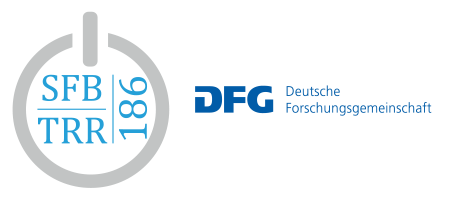Nanoscale regulation of molecular switches at the Golgi.
ARF GTPases are major regulatory control switches of intracellular trafficking and are ubiquitously distributed along the secretory pathways of mammalian cells, from the ER-Golgi intermediate compartment (ERGIC), a transient sorting station between the endoplasmic reticulum (ER) and the Golgi, to the plasma membrane. Many questions remain as to how they function in living cells and how they are recruited to membranes and regulated by GDP-GTP exchange factors (GEFs) and GTPase activating protein (GAPs). Employing super-resolution stimulated emission depletion (STED) microscopy in living and fixed cells, we were able to map the nanoscale localization of endogenously tagged ARFs. Interestingly, gene edited ARF1 and ARF4 localized to segregated nanodomains on the cis-Golgi and the ERGIC respectively. While the role of ARF1 in Golgi-to-ER transport has been extensively studied, ARF4 function remains ill defined. Its ERGIC localization and segregation from ARF1 prompted us to investigate a possible role for ARF4 in ER-to-Golgi transport. We were able to show that ER-to-Golgi transport occurs via a dynamically remodeling network of ARF4 tubules. ARF4 tubular-vesicular structures are connected to and remodel around static ER exit sites defined by COPII machinery. A wave of anterograde cargo released from the ER fills ARF4-positive tubular vesicular compartments, before filling the cis-Golgi cisternae. Acute degradation suggests a regulatory role for ARF4 and COPI in anterograde cargo flow upon ER exit. In the next funding period, we plan to focus on understanding how ARF GTPases are switched on by GEFs to regulate ER-Golgi transport. We will employ CRISPR-Cas9 and proximity biotinylation using TurboID to reveal the interactome of ARF1 and ARF4 and understand how these proteins are differentially recruited to membranes. Additionally, gene editing, dynamic confocal and live-cell STED microscopy and perturbation via CRISPR-Cas9 knock outs of ARF GEFs will allow discerning how ARF1 and ARF4 are regulated at the ER-Golgi interface.
